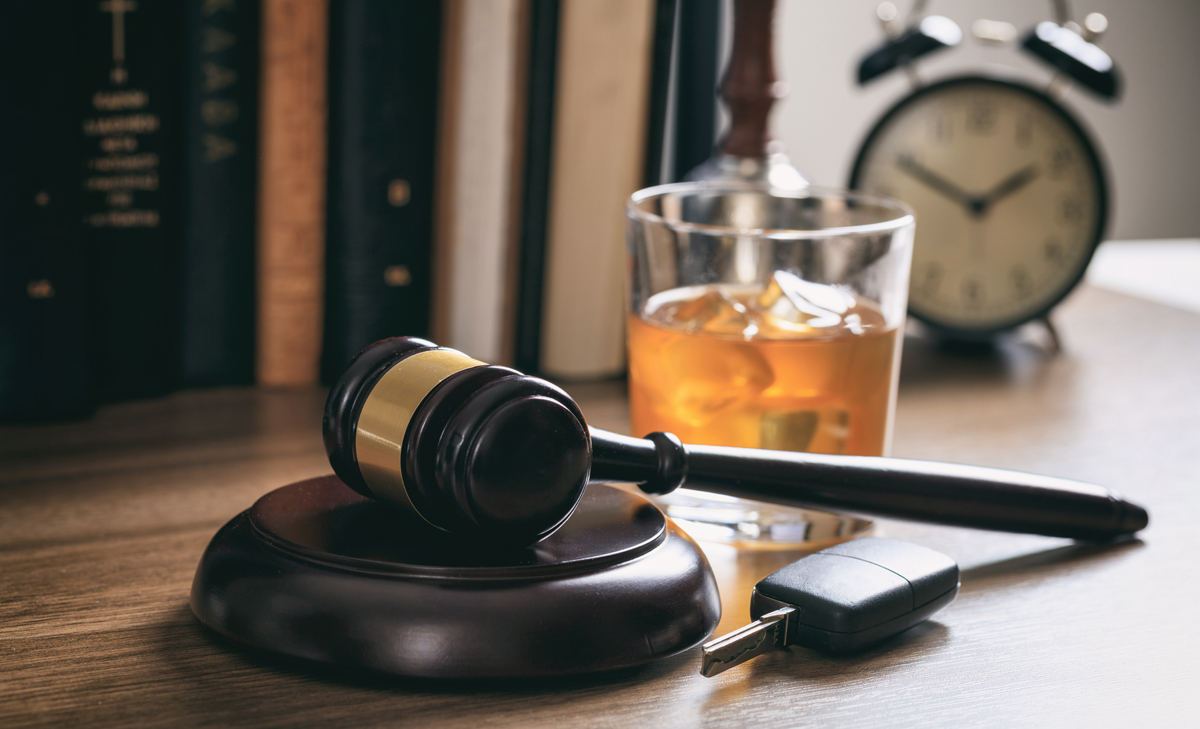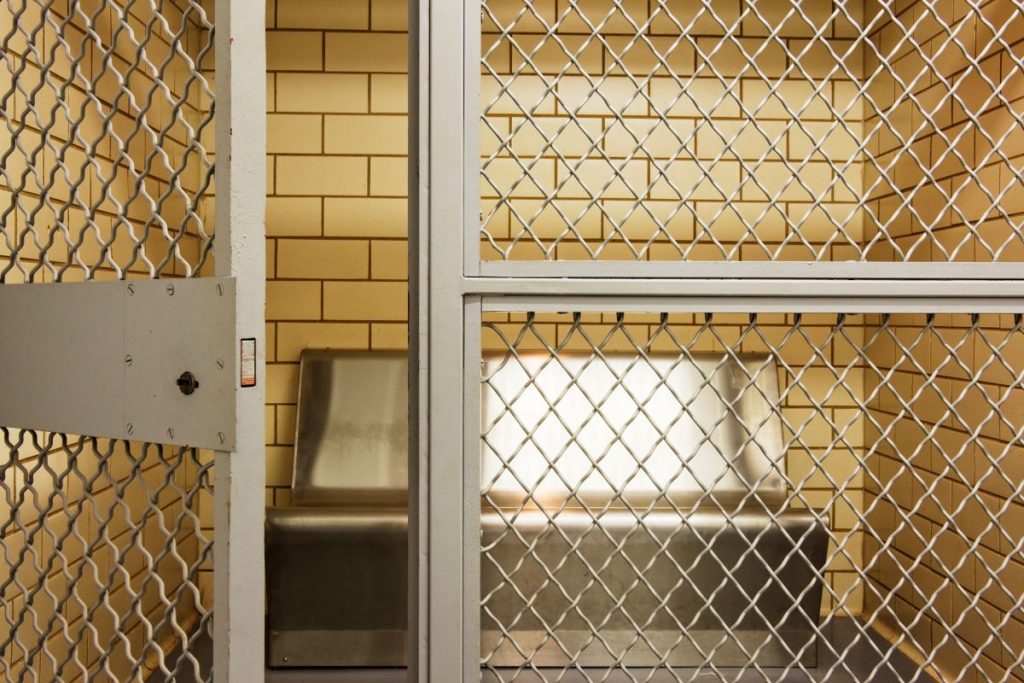Arizona DUI Laws 2024

Driving under the influence (DUI) is a serious offense in Arizona, with strict laws and harsh penalties. Here’s a summary of the key points:
Blood Alcohol Content (BAC) Limit:
- Adult drivers (21+): 0.08% BAC or higher is considered DUI.
- Commercial drivers (CDL holders): 0.04% BAC or higher is considered DUI.
- Underage drivers (20 and under): Any detectable amount of alcohol in their system is considered DUI.
Penalties:
- First offense:
- Up to 10 days in jail (mandatory minimum).
- $1,250 minimum fine.
- Alcohol screening/education/treatment.
- Ignition interlock device required for one year.
- Community service.
- Second offense:
- 90 days in jail (mandatory minimum).
- $3,000 minimum fine.
- Driver’s license revoked for one year.
- Ignition interlock device required for two years.
- Third and subsequent offenses:
- More severe jail time, fines, and license revocation periods.
- Increased ignition interlock device requirements.
Additional Points:
- Implied Consent Law: By driving in Arizona, you consent to chemical testing (breathalyzer, blood test) if suspected of DUI. Refusal can result in harsher penalties and license suspension.
- Field sobriety tests: Officers may conduct these tests to assess impairment.
- Drug DUI: Driving under the influence of drugs, prescription or illegal, is also illegal and carries penalties similar to alcohol DUI.
- Marijuana DUI: Legalization of recreational marijuana doesn’t change DUI laws. Driving while impaired by marijuana is illegal.
Resources:
- Arizona Department of Transportation – DUI information: https://www.azdps.gov/safety-messages
- Arizona Department of Public Safety – Safety messages: https://www.azdps.gov/safety-messages
Disclaimer: This information is for general awareness only and should not be considered legal advice. Please consult with an attorney for specific questions about DUI laws and your situation.
The DUI laws of Arizona explicitly forbid the operation of any form of motor transport in these circumstances:
- When the operator of the vehicle has a blood alcohol content (BAC) of 0.8 or more
- When they are under the influence of alcohol or drugs if the driver is to the slightest degree impaired
There is what is known as a “Not a drop” law in the state of Arizona. It states drivers under the of twenty-one years cannot drive with any amount of detectable alcohol in their body. Colloquially this is known as a “baby DUI.”
Incidentally the law includes what is defined as being in control of a motorized or electric vehicle as well as operating or driving a vehicle. The purpose is to prevent drunk driving prior to it commencing.
Arizona DUI Penalties
In Arizona, the circumstances of each case will determine the penalties for a DUI including the amount of previous convictions the individual may have as well as the blood alcohol content of the driver.
Impaired DUI (Blood Alcohol Content ranging from .08 to .149%)
- Jail: The minimum term is 10 days but is subject to all but 1 day or twenty-four hours may be suspended on the completion of screening for alcohol
- Fines: Minimum of $1,480
- Suspended License: Minimum for 90 days
- Ignition Interlock Device: 1-year mandatory (with a possible 6-month reduction)
Extreme DUI (Blood Alcohol Content ranging from .15 to .199%)
- Jail: The minimum term is 10 days but is subject to all, but 9 days may be suspended on the completion of screening for alcohol
- Fines: Minimum of $3,000
- Suspended License: Minimum for 90 days
- Ignition Interlock Device: 1-year mandatory
Super Extreme DUI (BAC of at least .20%)
- Jail: The minimum term is 45 days but is subject to all, but 14 days may be suspended on the completion of screening for alcohol
- Fines: Minimum of $3,250
- Suspended License: Minimum for 90 days
- Ignition Interlock Device: A mandatory 1-year term as a minimum
Further DUIs
Unquestionably Arizona has very harsh penalties for repeat offenders:
Impaired DUI
- Jail: The minimum term is 90 days and 30 of those must be served on consecutive terms but is subject to all, but 30 days may be suspended on the completion of screening for alcohol
- Fines: Minimum of $3,000
- Suspended License: At least 1 year however an individual may be able to obtain what is known as a restricted license after forty-five days if an ignition interlock device is installed
- Ignition Interlock Device: A mandatory 1-year term as a minimum
Extreme DUI
- Jail: Minimum of 120 days (60 served consecutively)
- Fines: Minimum of $3,250
- Suspended License: At least 1 year however an individual may be able to obtain what is known as a restricted license after forty-five days if an ignition interlock device is installed
- Ignition Interlock Device: A mandatory 1-year term as a minimum
Super Extreme DUI
- Jail: Minimum of 180 days (90 served consecutively)
- Fines: Minimum of $4,250
- Suspended License: At least 1 year however an individual may be able to obtain what is known as a restricted license after forty-five days if an ignition interlock device is installed
- Ignition Interlock Device: A mandatory 1-year term as a minimum
You should also know a third DUI represents a felony offense and carries a mandatory and minimum prison sentence of four months as license revocation for a minimum of one year, an IID requirement for a minimum of two years and in excess of $4,000 in assessments and fines.
Refusing a Breath Or Blood Test in Arizona And Implied Consent
The “implied consent” law on the books in Arizona states following a DUI arrest all drivers must, without exception, provide a breath or blood test. To refuse to do so will be penalized thus:
- Suspended License 1st offense: 1 year
- Suspended License 2nd offense: 2 year
While DUI laws tend to be similar across the United States, drivers should be aware of important legal distinctions from state to state. Arizona DUI laws are no exception. As a driver, you should already understand that operating a vehicle while impaired by drugs or alcohol could lead to serious legal ramifications.
This article explains Arizona DUI laws and what you should expect if charged there.
Arizona DUI Laws
According to Arizona’s DUI laws, it is illegal to drive or be in physical control of a vehicle while under the influence of drugs or alcohol. In addition, police officers can charge you with a DUI for a blood-alcohol content level (BAC) of 0.08% or greater. In some circumstances, such as driving a commercial vehicle, your BAC can be much lower and qualify as a DUI.
Overall, Arizona has a very strict approach to DUIs, referring to the act as the equivalent of a “violent crime.” As such, the state’s penalties even for a first-time offense could be seen as especially harsh compared to a state like California, where you could be a third-time DUI offender and not necessarily serve mandatory jail time.
These distinctions are broken down further in the following sections.
Arizona’s DUI Definition
First, there is a special emphasis in Arizona, as dictated by ARS § 28-1381, on the physical act of operating a vehicle while under the influence of alcohol or drugs. In Arizona, “under the influence,” should be understood as clearly impaired by a substance, legal or otherwise, to the point where you are not capable of safely operating any vehicle.
So if you are not capable of safely controlling your car or truck, but make any identifiable attempt to do so, you are guilty of a DUI according to Arizona law. Understanding this emphasis is important because you need not be driving to get charged with a DUI.
You Can Get an Arizona DUI Without Actually Driving
Even if you are not driving, any action that could be construed as “actual physical control” of your vehicle still violates Arizona’s DUI laws. Actual physical control goes into effect when you are deemed to be the primary party in control of your vehicle. Even if you aren’t on the road, actions like turning the headlights on, rolling the windows up or down or putting keys in the ignition or actions that dictate you are in actual physical control.
Please also note that you can still get charged with a DUI within two hours of operating a vehicle if your BAC is still above the legal limit during that time. That means even if you are at home, having driven an hour ago, you may still face charges for having too recently driven your car with a BAC above the legal limit.
How Arizona Law Defines “Under the Influence”
In Arizona, you are under the influence if you are impaired by a substance to the point it interferes with your ability to drive or operate a vehicle safely. This is typically defined according to reaching and exceeding a certain BAC limit. The standard is 0.08%, however it drops to 0.04% for commercial driving.
Arizona’s “Not A Drop” Law
The “not a drop” law, sometimes referred to as a baby DUI, concerns Arizona’s zero tolerance for underage driving and driving. If you are under 21 and drive with a BAC greater than 0.00%, you are guilty of a DUI.
A driver can have a detectable amount of alcohol in your system even after a few sips of beer or wine, making it very easy for underage drivers to violate this law and get into trouble.
Arizona “Shelter Rule” Defense
As stringent as Arizona’s laws can be about what falls under the definition of a DUI offense, the state also worried that some drivers, fearful of getting caught, would risk driving while intoxicated in the hopes of reaching home, a friend’s house, or hotel. And as parking isn’t necessarily an immediate defense against a DUI, some may have felt even more inclined to risk their safety and others by driving.
With this concern in mind, Arizona passed the “Shelter Rule” law, a temporary shelter defense against a DUI charge. Under this law, the act of pulling onto the side of the road or into a parking lot could be argued as relinquishing physical control, as you are avoiding the act of drunk driving.
There are a couple of factors that a judge or jury would need to take into consideration when deciding if a driver is in actual physical control:
- Are they behind the wheel? A person asleep in the back seat does not have the level of control over their vehicle that someone passed out behind the wheel might.
- Do they have keys in the ignition? While a lack of keys might help determine physical control in certain cases, many new vehicles do not use keys to start the ignition.
- What is the time of day? It makes the most sense to pull over and “sleep it off” if the driver does so in the middle of the night.
The more favorable these mitigating factors in demonstrating the relinquishment of actual physical control, the less likely you are to be convicted of a DUI.
Arizona DUI Penalties
Although the Arizona DUI laws label most offenses as misdemeanors, the consequences are still serious, even for the very first time. The severity of penalties also increase when drivers move from a simple DUI to an extreme or aggravated DUI.
Arizona’s Aggravated DUI Penalties
In Arizona, you have committed an aggravated DUI if you:
- Are arrested of a DUI with a suspended, revoked or canceled license.
- Commits a third DUI offense within 84 months of a previous conviction.
- Commit a DUI offense while a person under 15 is in the car.
- Has an ignition interlock device (IID) in place, but refuses to submit to a BAC test.
While most DUIs can be charged as a misdemeanor, an aggravated DUI is a felony that carries stiff punishment if convicted. Penalties include up to two years in prison, loss of your driver’s license for a year, mandatory entrance into an alcohol education, treatment and screening program, addition of a certified IID in your vehicle, and mandatory community service.
Arizona’s Extreme DUI Penalties
An extreme DUI refers to drivers with a BAC level exceeding 0.15%. The first time this happens, drivers serve a mandatory jail sentence of at least 30 days without the eligibility of probation or a suspended sentence. Additionally, they must pay a minimum fine of $2,500. Any vehicle you drive must get an IID installed, and you are required to enroll in an alcohol screening, education and treatment program.
While the extreme DUI has harsher punishments than a standard DUI charge, it still gets classified as a misdemeanor.
For the second offense and beyond, the punishments become even more severe. Your license gets automatically revoked for a year, and you face a minimum jail sentence of 120 days. In addition to the mandatory IID and alcohol screening, education, and treatment program, you must also perform community service.
It’s important to remember that the severity of subsequent DUI charges increases the closer they occur together; typically, the escalation in severity refers to multiple convictions happening within a seven-year period.
Implied Consent and Refusing a Blood or Breath Test in Arizona
According to ARS § 28-1321, the “implied consent affidavit,” is served to any driver suspected of a DUI offense where they refuse to or are for whatever reason cannot submit to testing that determines their blood alcohol concentration or drug content. This affidavit is the equivalent of a DUI citation.
For this reason, all drivers are required to submit to testing. The first time a driver refuses, their driving privileges get suspended for a year; a second refusal within 84 months of the first will cause a two-year suspension.
Speak With One Of Our DUI Attorneys In Scottsdale
Canterbury Law Group’s DUI Lawyers in Phoenix and Scottsdale will defend your case with personal attention and always have you and your best interests in mind. Call today for an initial consultation!
We are experienced criminal defense attorneys and will fight for you to obtain the best possible outcome. Our firm will rigorously represent you, so you can get on with your life. Call today for an initial consultation! 480-744-7711 or [email protected]
*This information is not intended to be legal advice. Please contact Canterbury Law Group today to learn more about your personal legal needs.








